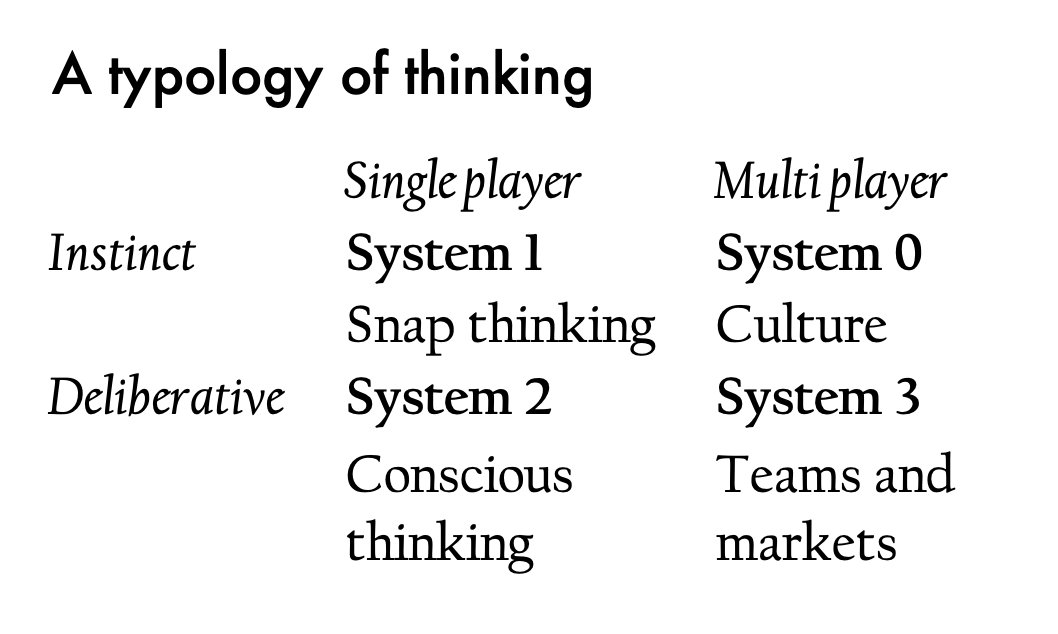Thinking About Thinking
Indy Neogy and
Thinking About Thinking
Indy Neogy and

alex and
from Peter Watts: "We're not thinking machines, we're feeling machines that happen to think."
sari and
Charlie Gedeon and • 13 cards

("JP") and
Learning how to think really means learning how to exercise some control over how and what you think. It means being conscious and aware enough to choose what you pay attention to and to choose how you construct meaning from experience. Because if you cannot exercise this kind of choice in adult life, you will be totally hosed.... See more
David Foster Wallace,
Alara and